By Chris Spangler
As part of the national conversation on law enforcement’s treatment of minorities and other disenfranchised populations, the Unity Project of Fort Atkinson is surveying residents on their perceptions of the local police department.
The nonprofit organization established a Community-Police Partnership Team, co-chaired by Kaia Fowler and Sue Johnson, to foster connections and communication between all community members and the Police Department and city regarding issues of policing.
The survey is a starting place for this effort.
It may be accessed at www.fort4all.com. A paper version is available at the Dwight Foster Public Library.
Noting that recent events nationwide have caused some members of the community to be fearful and think negatively of the police, the Unity Project said its goal is to use the survey results to improve the relationship between all members of the community and the Fort Atkinson Police Department.
“If you work, live, attend school in or have a child who attends school in Fort Atkinson, then we want to hear from you, because that means you’re likely to be served by the Fort Atkinson Police Department,” Fowler said.
“That is the focus: When people are filling out the questionnaire, we want to hear their perspective, their perceptions, their views of the Fort Atkinson Police Department,” she added. “Not policing in general, not the Minneapolis Police Department … The focus of our team is on local policing.”
The survey evolved from the Unity Project’s interest in forming connections between disadvantaged community members and the police and the need to get a sense of where things stand now.
Fowler said it marks a first step toward a much bigger goal that fits with the organization’s mission of promoting a sense of acceptance and belonging for all members of the community.
Fowler became involved in the effort after attending a local Black Lives Matter rally last summer. She indicated an interest in taking further action and quickly was asked to co-chair the new committee.
“I feel a lot of emotions around equity,” she said. “I want to feel comfortable, welcome and safe in my town, and want others to, as well. I firmly believe in taking action where I can and doing my part.”
Fowler’s education and employment background focuses on writing and qualitative research, skillsets perfect for this project.
“Our big question as a team was ‘what needs to be done?’ We could have come in and said, ‘let’s see what everyone else is saying’ … and replicate it here. But there is a risk that it wasn’t going to be needed or a good fit for issues that are happening in Fort Atkinson,” she explained.
“I like to take a data-informed approach, partly because I have a strong belief in research methodology,” Fowler continued. “Our team wasn’t going to quickly throw something together and put it on Facebook. We took a process of development of iterations and pilot testing with various community representatives, and we hope what we have is a robust, comprehensive and inclusive questionnaire.”
The majority of questions are statements with multiple-choice answers. Among them are:
• I trust police officers in Fort Atkinson to show respect to me and my family members.
• I trust the Fort Atkinson police to use an appropriate amount of force with everyone, no matter their race, ethnicity, mental health status, or level of disability.
• I hesitate to call the Fort Atkinson police because I am not sure what they will do when they arrive.
• I worry that if I call the Fort Atkinson police about a situation, it will result in someone getting hurt or unfairly arrested.
• I wish we had more police patrolling around in Fort Atkinson.
• The police in Fort Atkinson are here to help us.
“There’s ample opportunity on there to give feedback of all kinds. Mainly they are quick multiple-choice questions, but there also are a few comment-type questions so people can contribute as much as they would like,” Fowler said.
She pointed out that the idea is to use the survey responses to build solutions to whatever concerns might come up, as well as celebrate the positives mentioned.
“The more responses we get, the better, and the more diverse representation we get in that response set, the better,” Fowler said. “The goal is to put everyone’s responses together — all anonymous — and then take a look at the big picture, and communicate that back to the police department and the community at large.”
She emphasized that this survey is not just in response to the Black Lives Matter movement. It addresses a diverse population that also includes persons who identify as LGBTQ+, have a physical or mental disability, come from a low-income household or have some other status or identity that could make them feel more vulnerable.
“There’s so much emotion around the topic of policing right now and it’s constantly in the news,” Fowler said. “The focus of the Unity Project is inclusivity and bringing everyone together. At the same time, witnessing people who have experienced discrimination or bias, it’s hard for me right now to say things to celebrate the police department — even though I’m confident that there would be things to celebrate — because my fear is I’m seen as someone who is not open to hearing someone else’s experience.”
Fowler explained that without asking, no one who is not a member of those cultural groups or similar truly can know the experience of being Black or Hispanic or LGBTQ-plus in Fort Atkinson.
“I can’t imagine being a mother of a Black child,” Fowler, who identifies as White, said. “I identify very strongly as a mother; it is a big part of my life and who I am. And it hurts every time I hear a Black mother talking about what it is like to have her Black son — or daughter — feel they are not protected by the police, and that they actually could be in danger if they end up interacting with the police.
“So for me, I don’t know what I don’t know,” she added. “The majority voice tends to be loudest because there are more of us, so I would like to get disadvantaged groups a bigger voice.”
The ultimate goal is improved communication between the community at large and police, as well as the disenfranchised residents and community.
Johnson and other team members talked with Fort Atkinson Police Chief Adrian Bump and sent him a copy of the survey.
“The tightrope we walk as a team is how do we convey support to not this side or that side, but to a bridge-building experience that benefits everyone?” Fowler said. “Our hope is that it will help both the Fort Atkinson Police Department and any communities and subgroups within the community that are feeling that sense of fear or pressure.”
She said this is about a fear of the unknown and the unfamiliar.
“The aim is to witness and uncover any kinds of problems that are existing so they can be addressed,” Fowler said. “There also could be the benefit of calming some fears by opening the windows and doors, having greater transparency of some sort, having people feel that they are being listened to.
“We have to start at a place of knowledge, and local knowledge, and move everything from whispered anecdotes and ‘did you hear this’ and ‘did you hear that’ to a more objective and research-informed report so that we have a starting place for a conversation.”
The ultimate goal, she said, likely is change.
“We believe in this city. We believe in this community,” Fowler said of the Unity Project. “It matters to us what everyone’s experience is living here. For me, if you’re going to say nothing bad ever happens here, then are we in some Hollywood utopian creation? It can’t be true. So let’s look at ourselves in the mirror and see what we might want to fix.”
She said that society today is talking about things that never were discussed before. And it is about time.
“We have seen in other places that once the community has a voice, things can start to be shifted in a better direction,” she said.
Meanwhile, the committee is seeking community partners to help distribute the paper survey, including businesses, organizations, churches, community centers and government offices. Interested persons may contact UnityFortCPPT@gmail.com.
“We are looking for help with that because we believe the paper survey is key for getting responses from people who are not as online oriented as others,” Fowler said, noting that more than 150 responses have been received thus far.
“We appreciate everyone contributing their voice to the project,” she added. “Definitely share the survey, and encourage everyone to take it.”
Overall, the Unity Project’s mission is to make Fort Atkinson and surrounding town equally welcoming to all community members. Unity Project members are not elected; all are volunteers.
About a year ago, one volunteer created two subcommittees focusing on police relationships and school relationships. The goal of these groups is to partner with these entities to raise awareness of concerns or needs, and perhaps even help them address those concerns or needs.
Among its many activities, the Unity Project created the first bilingual festival in Fort Atkinson, which now is in its fourth year; partnered with local organizations to have Spanish signage included in some of the city’s parks; partnered with teachers for a fundraiser for a Hispanic child with terminal cancer; created the first Pride Day event in Fort Atkinson; has held dances focused on the differently-abled; has lobbied and achieved a statement of inclusion for the City of Fort Atkinson; and has purchased and installed books including diverse characters in Fort Atkinson.
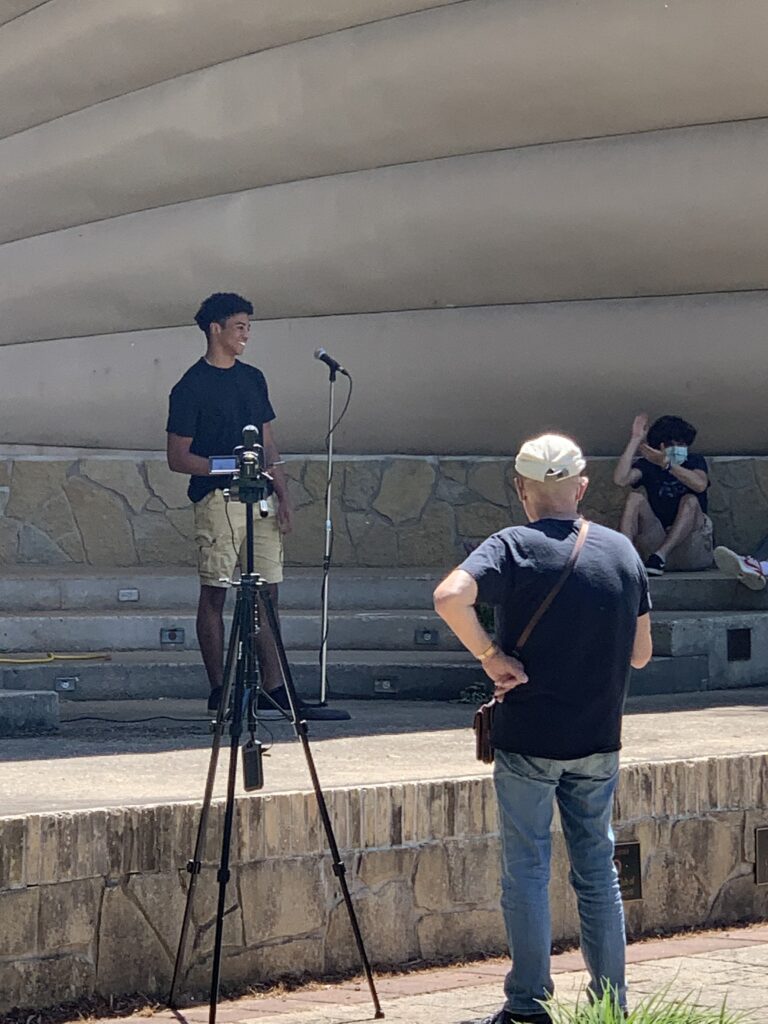
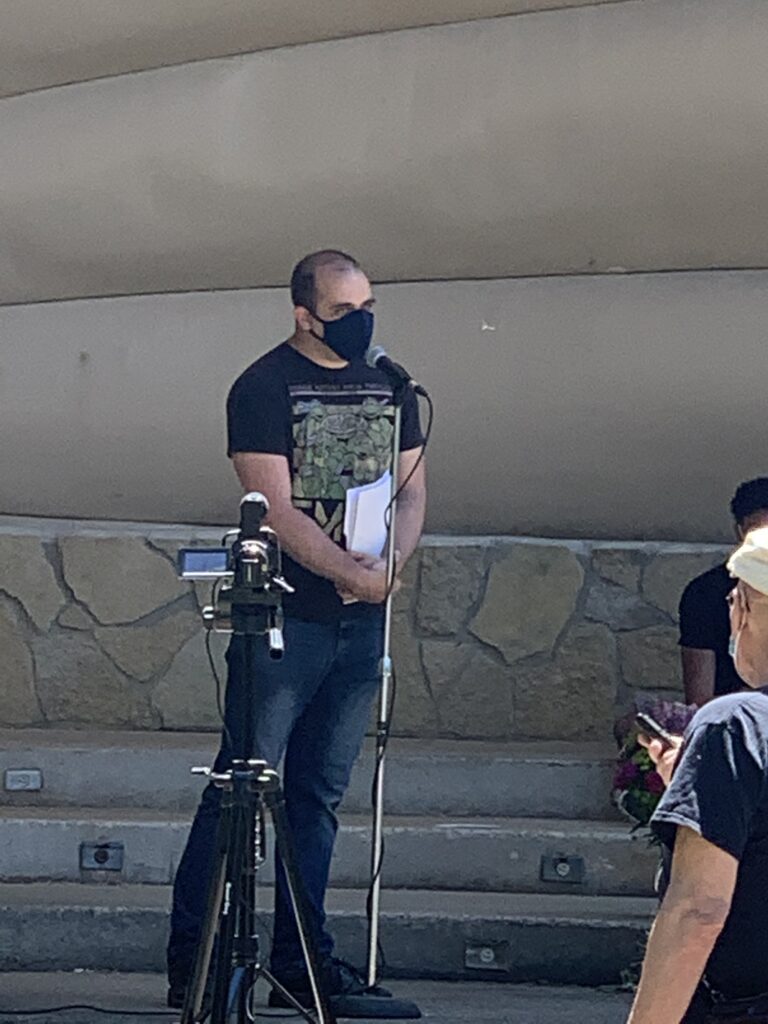
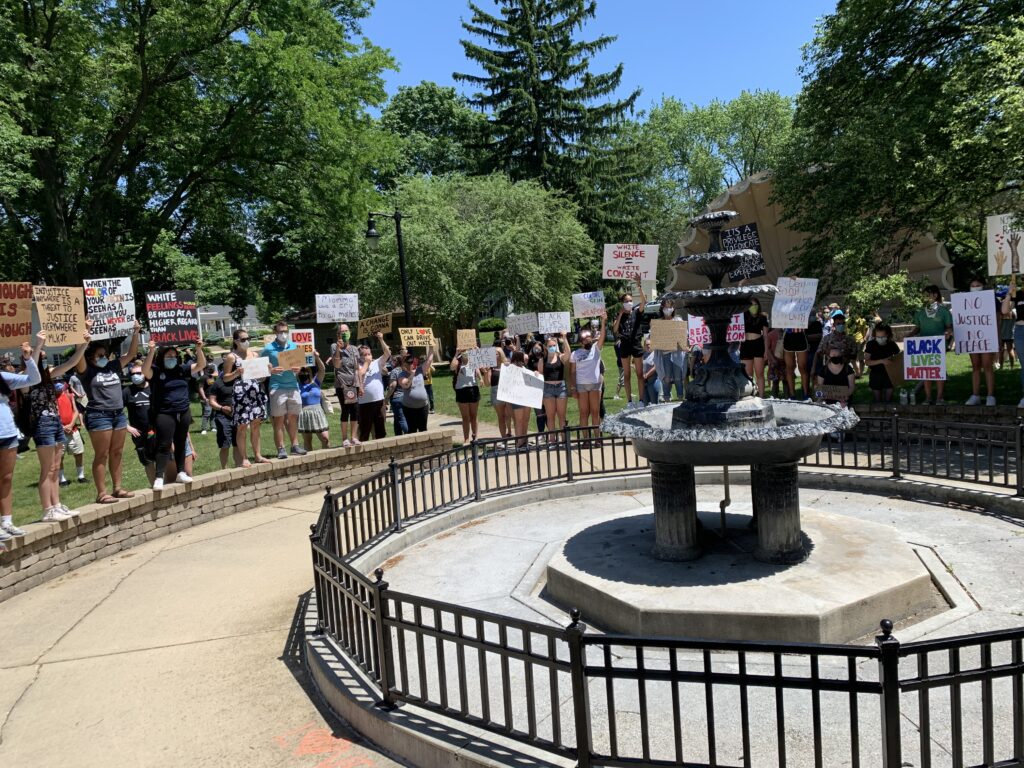
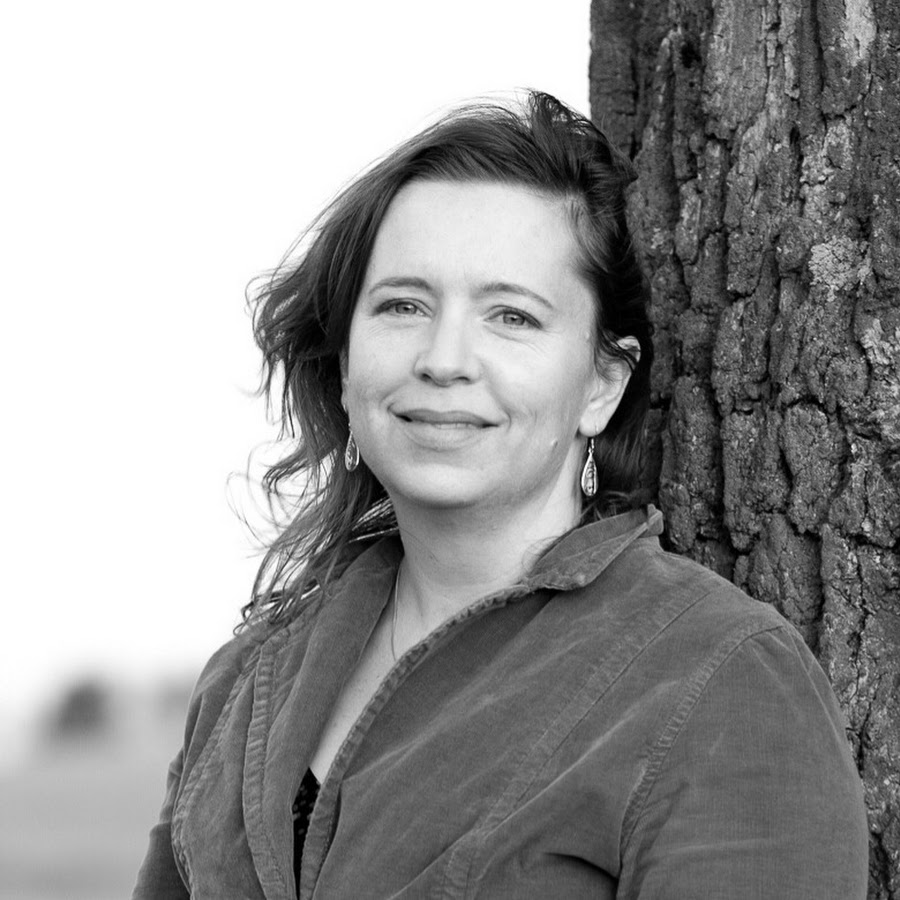
The Unity Project of Fort Atkinson, a nonprofit organization which has established a Community-Police Partnership Team, is co-chaired by Kaia Fowler, pictured, and Sue Johnson. Submitted photo.
This post has already been read 2873 times!
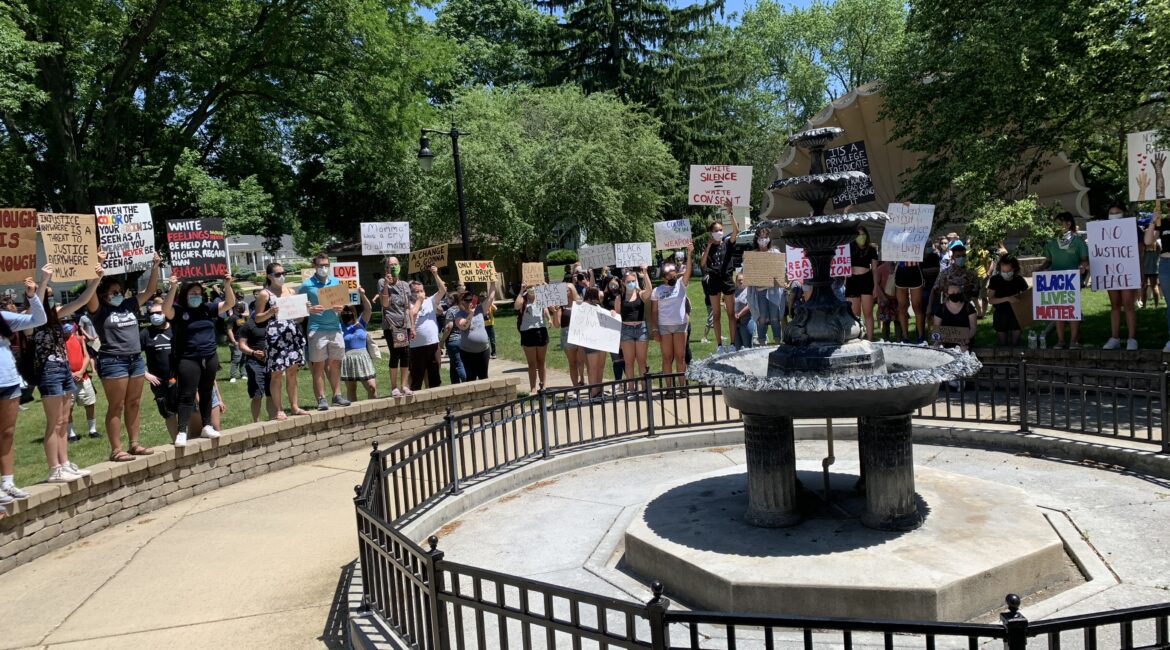
I don’t believe I’ve had the pleasure of meeting any of the folks mentioned or pictured in this article, but I’m assuming that their motives for doing what they do with the Unity Project as it pertains to Fort Atkinson are generally good. However, it would seem you are going about it the wrong way, or perhaps using the wrong name for your endeavor. To me, the word UNITY speaks to being one, singular, etc. Yet, under your unity umbrella, you have divided Fort Atkinsonians into many sub-groups already – black, white, brown, english-speaking, spanish-speaking, LGBTQ+ (how many subgroups within that abbreviation?) mothers of black children, mothers of white children, poor, disadvantaged, etc. I believe all of these labels serve to divide and confuse all of us even more. I’m not sure where I fit in, am I welcome? Or do I need to be vetted? To help you out with that process, I’ll let you know that I am a white male, a husband, a father, a farmer, I go to church, I speak english, I am bald, not terribly overweight but I fill out my shirt. I eat meat, but not fish. I do not drink beer, but I like raw milk, and strong coffee. I mow my lawn during the month of May. I vote. I did not attend college. I don’t own a gun. I have been known to cut down a tree. I like dogs, not cats, but I do own cats. I do not own an electric car, but do drive a very economical Toyota Corolla. I respect, honor, and appreciate my local police, even though I’ve paid many a speeding ticket over the years…..I like classical music. I have listened to folk music but it sometimes makes me laugh. Finally, I, too, believe I am disadvantaged because I never get a vacation; I have to work seven-days-a-week/ 365-days-a-year, and do not get paid what I am worth because people all over believe that food should be cheap. Is this the right kind of disadvantaged, or have I missed the mark? I just want to belong.